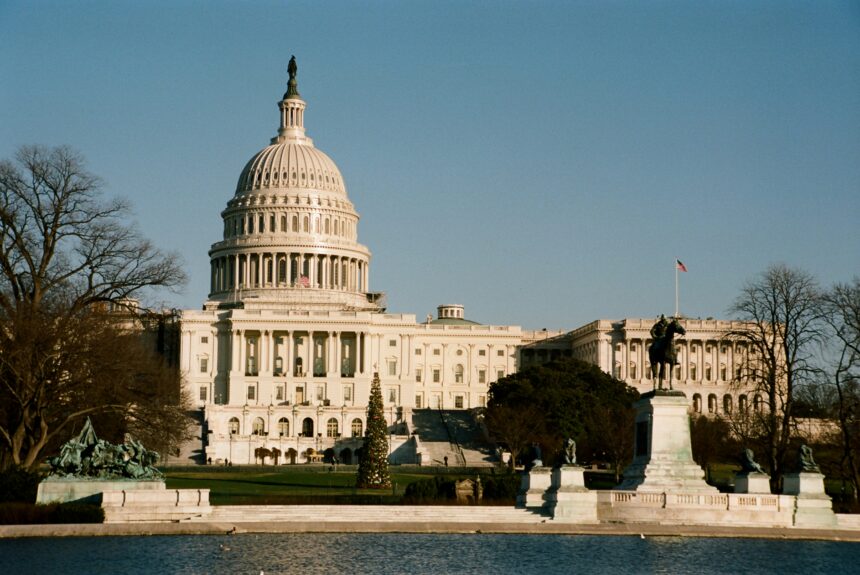In a recent hearing entitled “Climate Control: Decarbonization Collusion in Environmental, Social, and Governance (ESG) Investing,” House Republicans alleged that a “climate cartel” of left-wing activists and major financial institutions are colluding to impose radical ESG goals on American companies.
>>>READ: C3 Solutions Unveils Free-market, Pro-growth Investment Principles Related to ESG
The hearing followed the release of an interim report, “Climate Control: Exposing The Decarbonization Collusion in Environmental, Social, and Governance (ESG) Investing.”
In a statement accompanying the release of the report, the committee argued:
“The climate cartel colludes to decarbonize companies by leveraging negotiations with management, shareholder resolutions, and board of director votes. This cartel forces companies to disclose their carbon emissions, reduce their carbon emissions, and enforce their disclosure and reduction commitments by handcuffing and restricting company management. This ‘decarbonization’ collusion necessarily causes reduced output and higher prices, including in the critical fossil fuel, aviation, and agriculture industries, posing a significant threat to the economy and to the well-being of American consumers.”
If the primary goal of the report and hearing is to document and critique the wrong-headed, heavy-handed, and imperious actions of left-wing activists and their allies within major financial institutions, the committee has succeeded masterfully. However, if the goal is to set up winning anti-trust cases that bar may be difficult to clear.
The hearing also illustrated a missed opportunity and the opportunity cost of conservatives heavily investing in an anti-ESG argument at the expense of developing a more devastating and defensible critique of the left’s bad economic arguments. Bad economic arguments are not criminal; they are worse than criminal.
The fantasy that reducing energy supply by haranguing oil companies and consumers is catastrophically bad for the planet and its people, especially for lower-income Americans and people in the developing world. The better argument is to make the case that free economies are twice as clean as less economies. If your goal is to reduce emissions, policymakers in all countries should race to implement an economic freedom agenda that encourages innovation.
As is often the case, most of the hearing featured the parties talking past each other. Republicans pressed evasive witnesses to confront the consequences of reducing energy supplies while Democrats offered their usual partisan pablum about “Big Oil” colluding with “dark money.”
The highlights of the hearing were the beginning and end that bookended the essential economic argument.
In his opening statement, Rep. Thomas Massie (R-KY), Chairman of Subcommittee on the Administrative State, Regulatory Reform, and Antitrust, quoted the legendary economist and Nobel laureate Milton Friedman who said, “There has never been a more effective machine for eliminating poverty than the free enterprise system and the free market.”
If Friedman were alive today, I suspect he would concur with our Free Economies are Clean Economies report. The free enterprise doesn’t just reduce poverty, it also lowers emissions.
Near the end of the hearing, Rep. Darrell Issa (R-CA), similarly address the real issue. He said, “There is zero risk today in investing in the oil and natural gas industry. There’s zero risk because for the foreseeable future we are going to need it and we’re going to need more. Yes, we need it to be as clean as it possibly can … but it is clear you’re making investment decisions based on your politics and not on the best interest of National Security of the welfare of the American people.”
>>>READ: Oil and Gas Aims to Boost Productivity, Reduce Emissions
Republicans are right to critique heavy-handed ESG actors (we’ve released our own set of free-market principles related to ESG), but they can’t afford to neglect the positive argument about the benefits of economic freedom. The left’s argument against “Big Oil” seems logical (if you reduce fossil fuel production you lower emissions) but it is dangerously superficial, incomplete, and untrue. The history of energy shows that the economic activity generated by one energy source leads to innovations toward cleaner energy. Burning trees allowed civilization to discover fossil fuels; now fossil fuels are accelerating the deployment of cleaner technologies like nuclear. That’s how the world works.
The party that aligns itself with reality and offers a positive vision will discover that, in time, politics will bend toward reality and reward policymakers who lead.
The views and opinions expressed are those of the author’s and do not necessarily reflect the official policy or position of C3.
